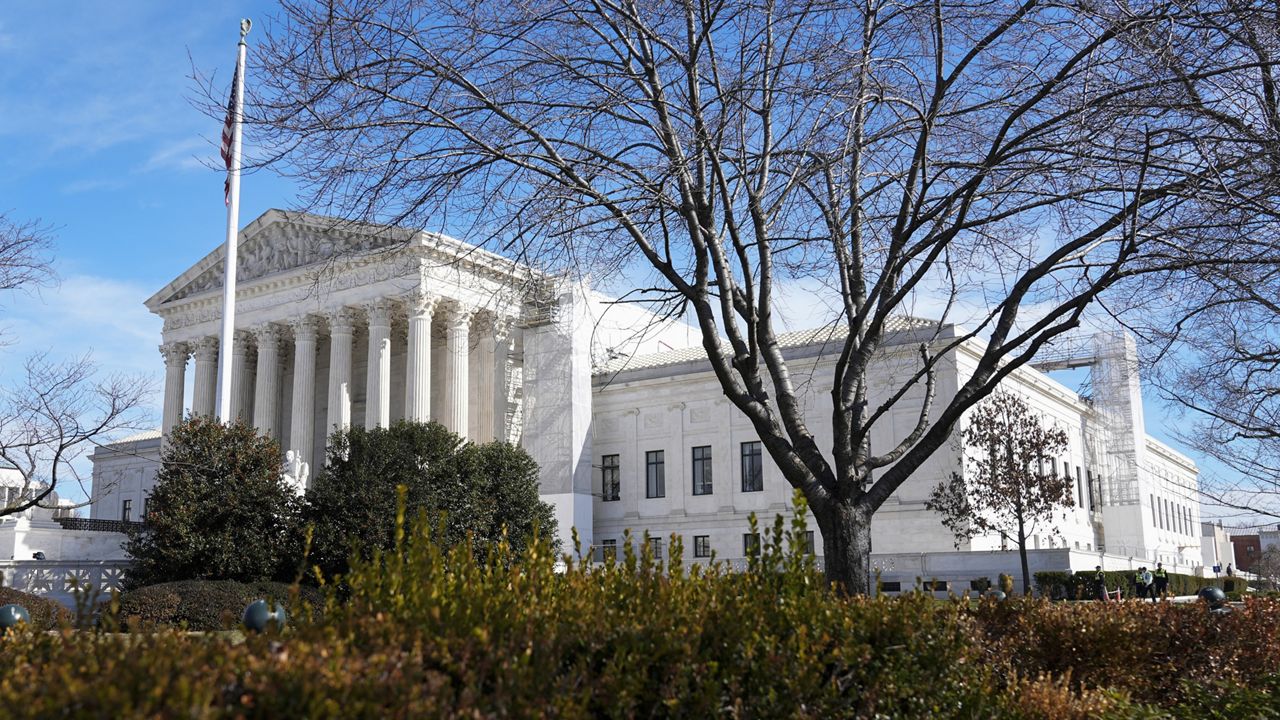The Supreme Court on Monday is set to hear arguments over two Republican-led states' attempts to regulate social media in an effort to stop what they believe is censoring of conservative viewpoints.
But legal experts say the companies opposed to the laws have a strong case about their First Amendment rights.
Florida’s law imposes fines for social media companies that deactivate a politician’s account and lets users sue if they believe their content has been unfairly removed, while a regulation in Texas prevents platforms with more than 50 million monthly users from bans accounts based on political views.
Both Florida and Texas enacted their respective restrictions in 2021, after major platforms had kicked off former President Donald Trump for his comments related to the Jan. 6, 2021, insurrection at the U.S. Capitol. (Trump has since been reinstated by both companies.)
Tech companies quickly sued, and lower courts put enforcement of the laws on hold.
Now the nation’s top court will weigh in and both sides will argue this is about free speech.
Attorneys for Florida and Texas will likely lean into the concept that the internet is the new "town square," a standard established by the Supreme Court’s 2017 ruling in Packingham v. North Carolina -- and as a place for the free exchange of ideas, they will likely argue there should not be any censorship.
But conservatives’ complaints about perceived bias from Facebook, Twitter (which has since rebranded to X under the ownership of Elon Musk), and other Silicon Valley giants go beyond that, experts say.
Roy Gutterman, director of the Tully Center for Free Speech at Syracuse University, explains that in recent years “some viewpoints on COVID, immigration issues, diversity issues, other types of conspiracy theories have found themselves de-platformed and aggrieved.”
Gutterman agrees that the internet does now serve that function, but points out one key difference between the town square of yesteryear and social media networks: while the square was public property, social media is privately owned. That means the government is not making decisions about what posts to remove -- it also means the companies have certain protections.
“There's a good argument to be made, that these laws in Texas and Florida are invading these private entities' right to determine what kind of content they put out there on the internet,” Gutterman says.
Georgetown Law Professor Anupam Chander adds this case flips one of the normal dynamics on the court.
“Often, the liberals have been upset with too many constitutional rights for corporations," Chander told Spectrum News. "But here it's the conservatives that are upset with too many constitutional rights for corporations.”
The states could gain some sympathy from the more left-leaning judges who are interested in preserving the government’s ability to regulate big tech, Chander suggested.
But still, he adds: “I do think that the more likely result is a kind of centrist view of the First Amendment."
That view, Chander explains, would continue the tradition of saying corporations from The New York Times to Twitter that serve as publishers of content are free to make editorial judgments without the state interfering.
“What to allow on the front page and what to not allow on the front page, whose voices to carry, are those that publishers have made before.”



